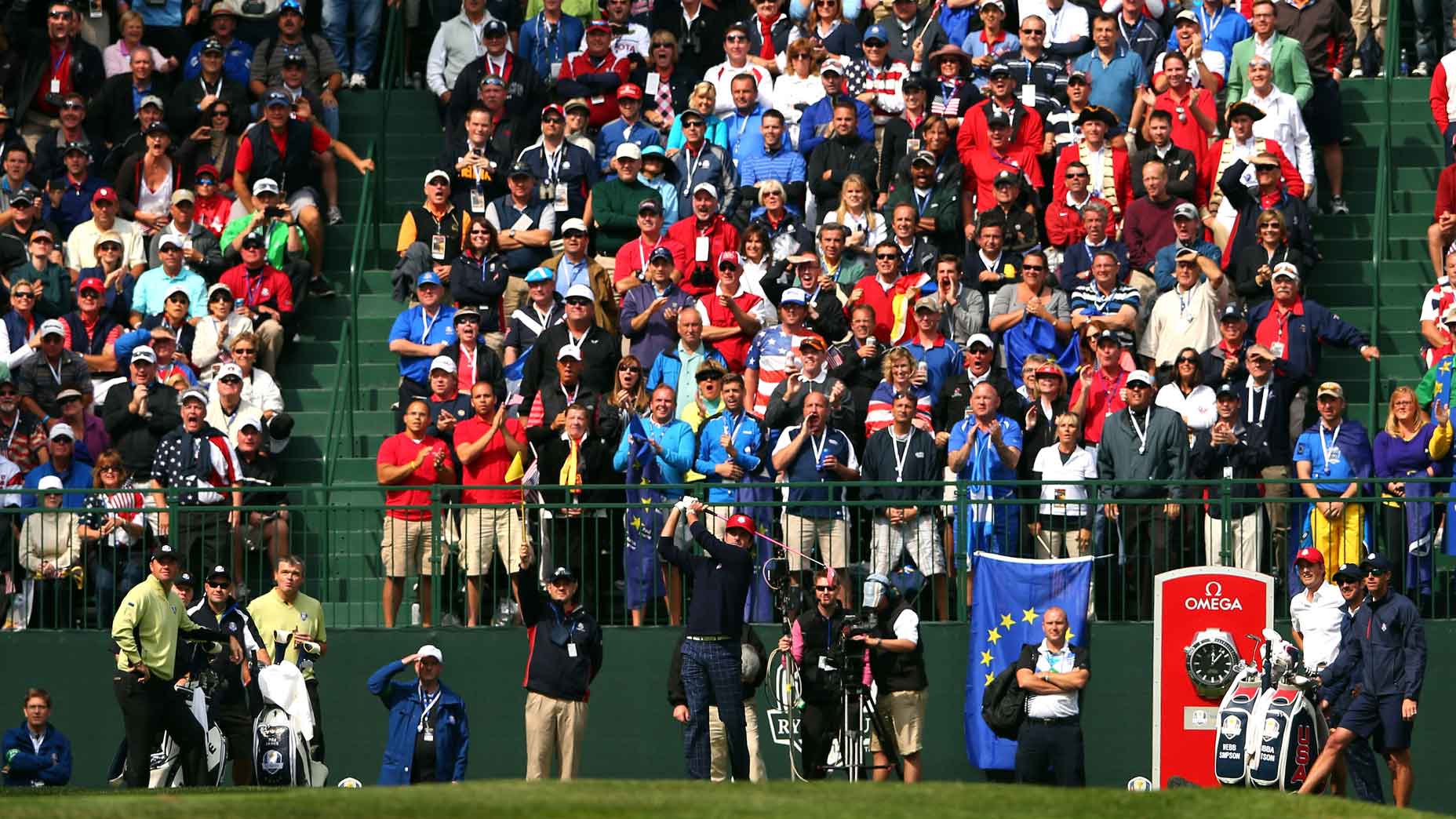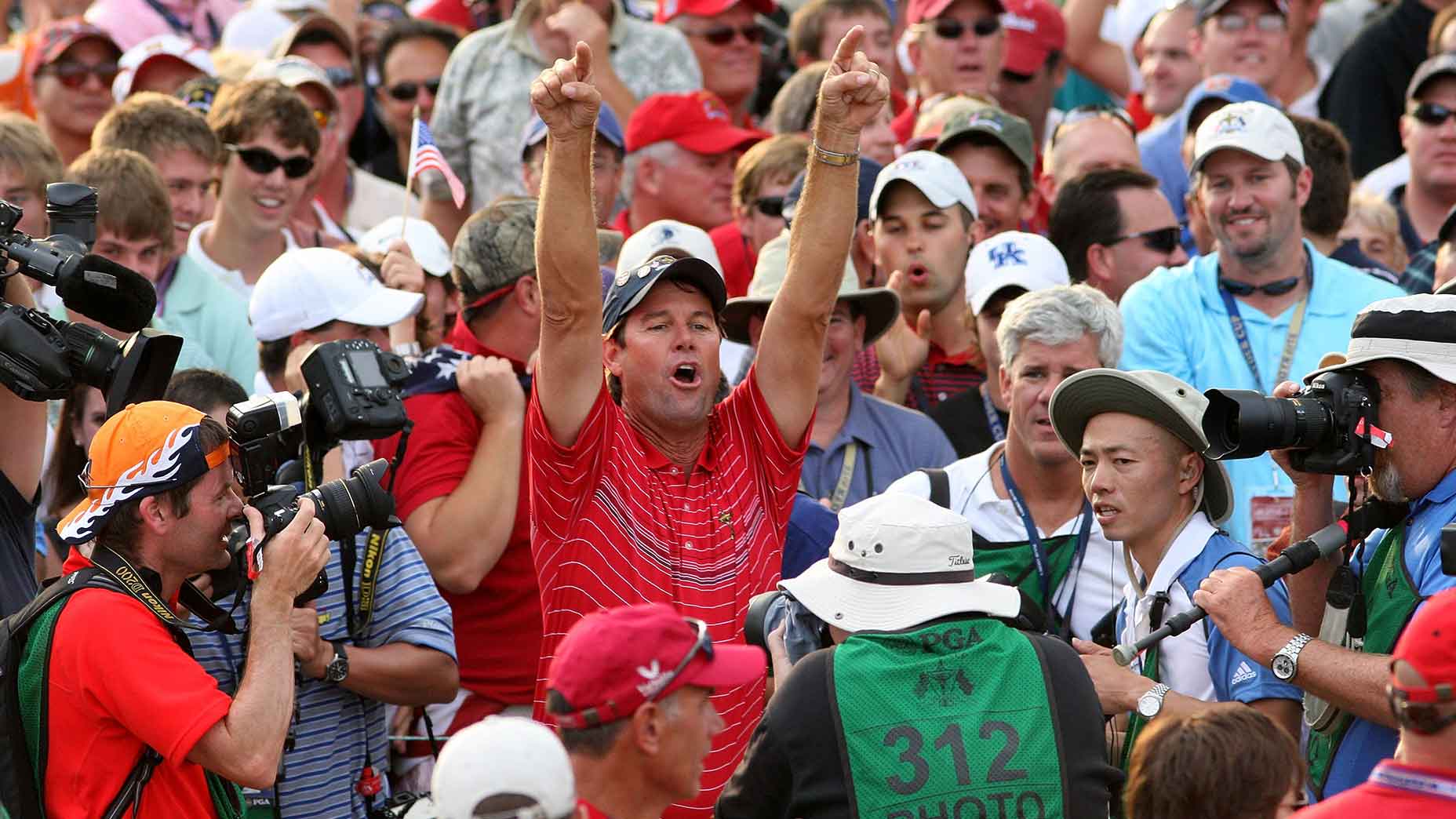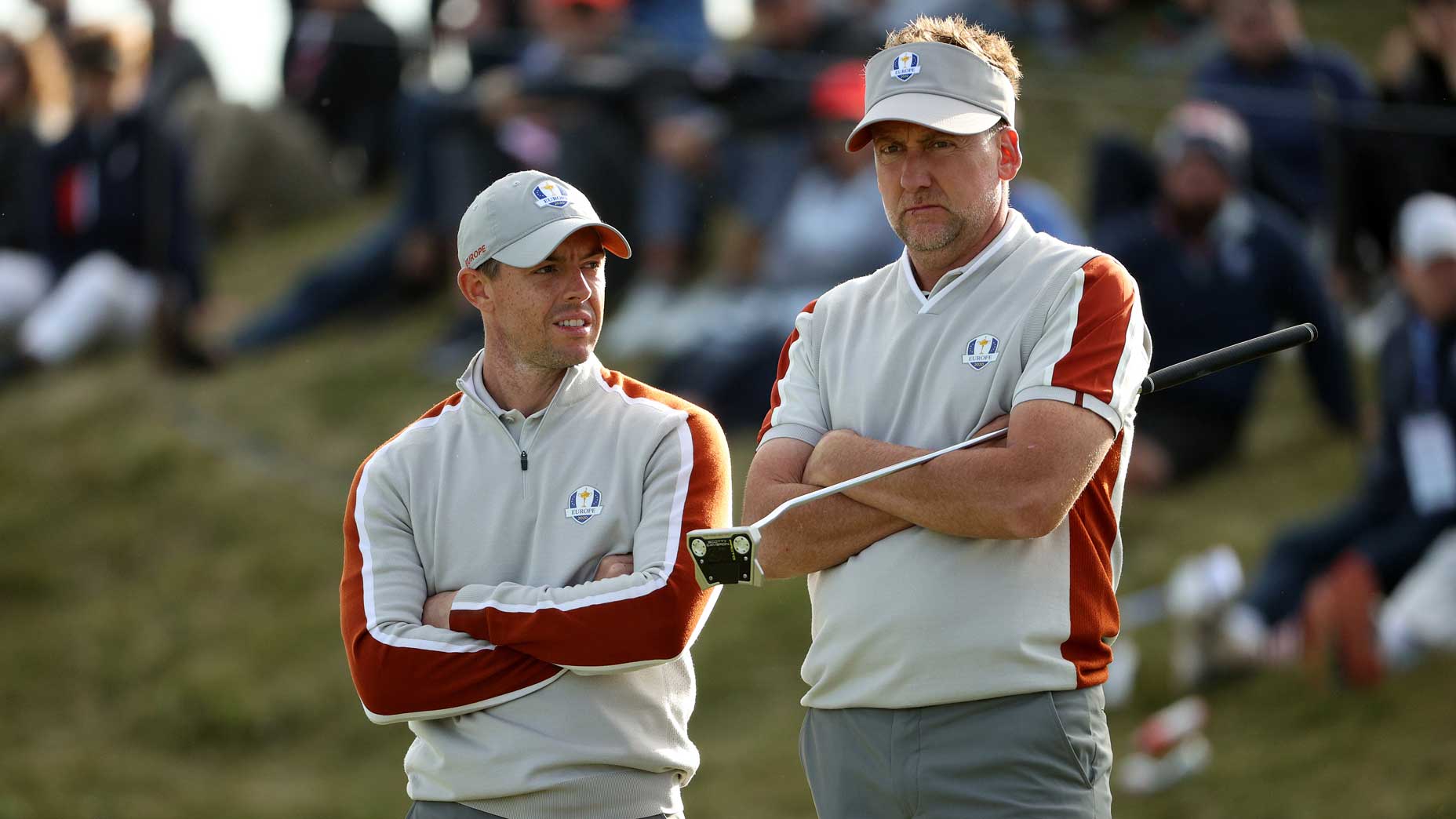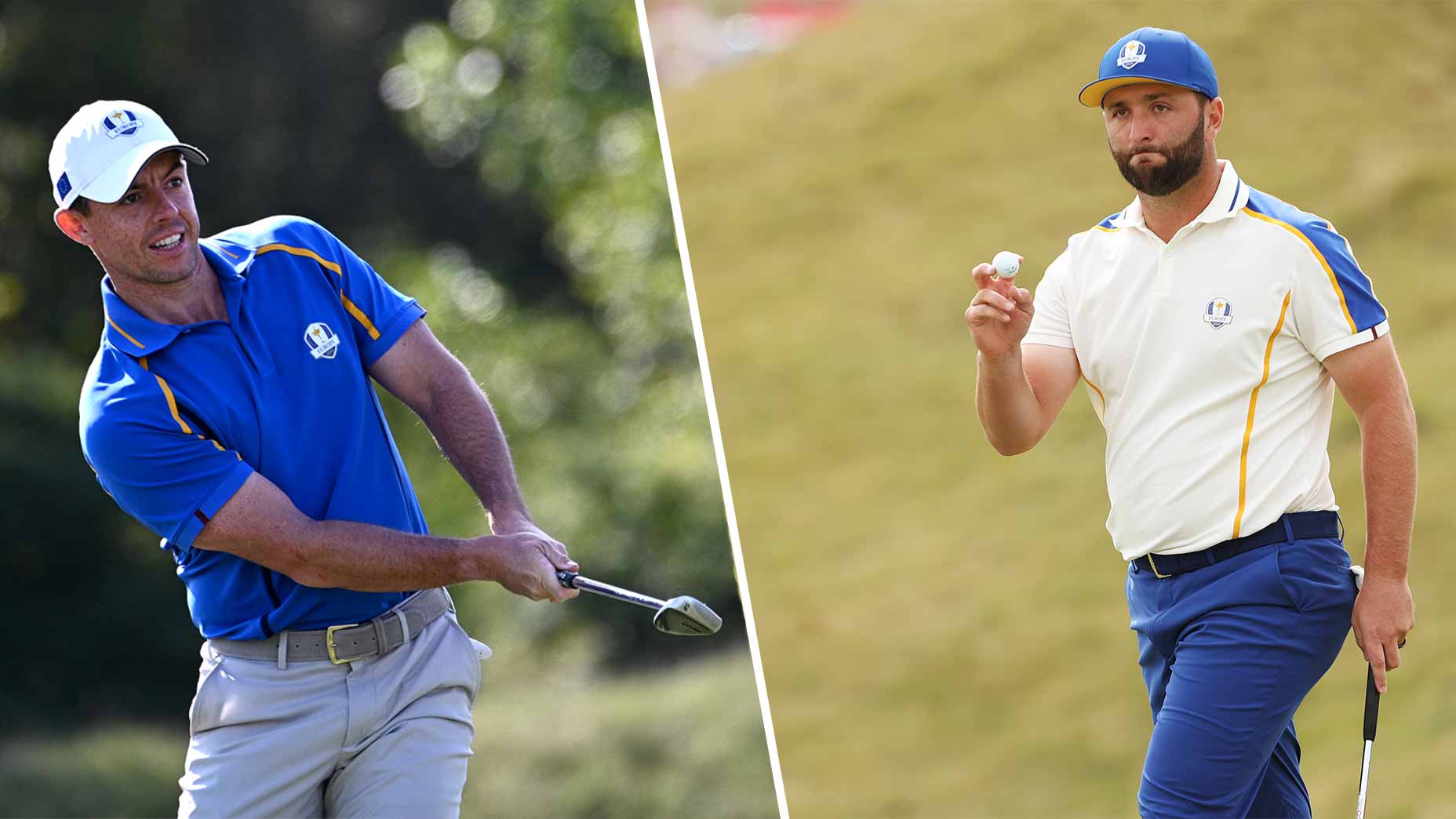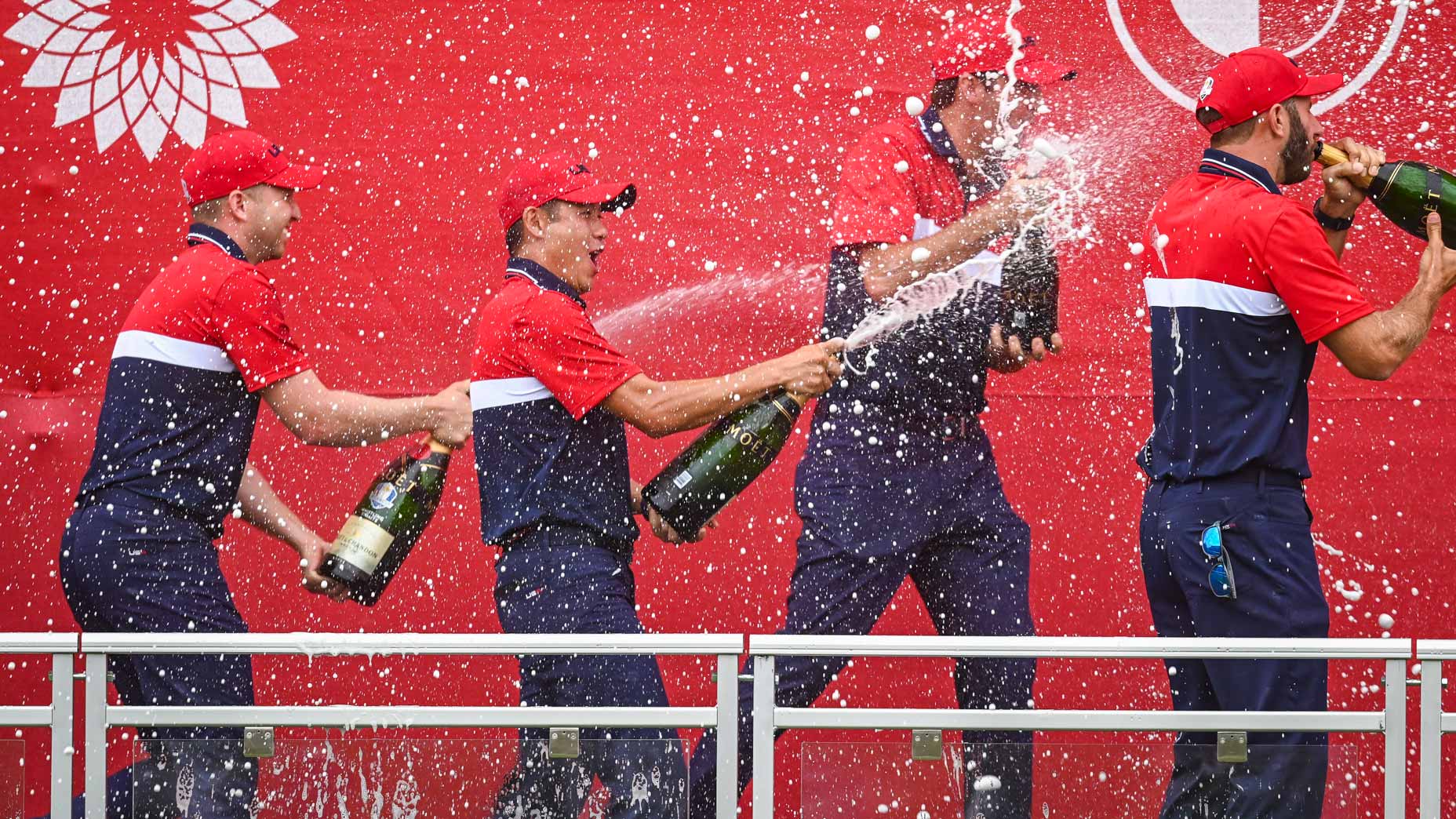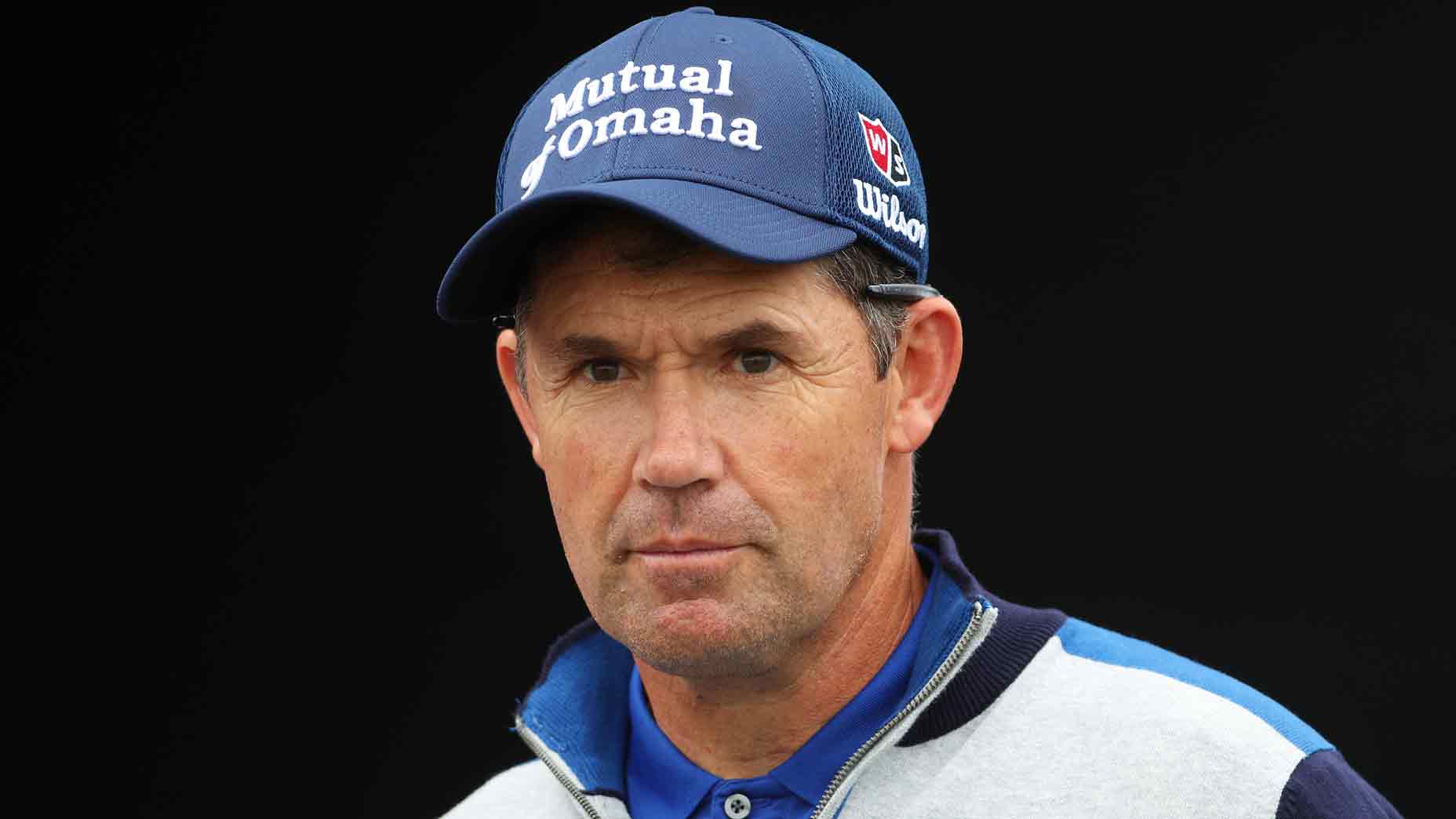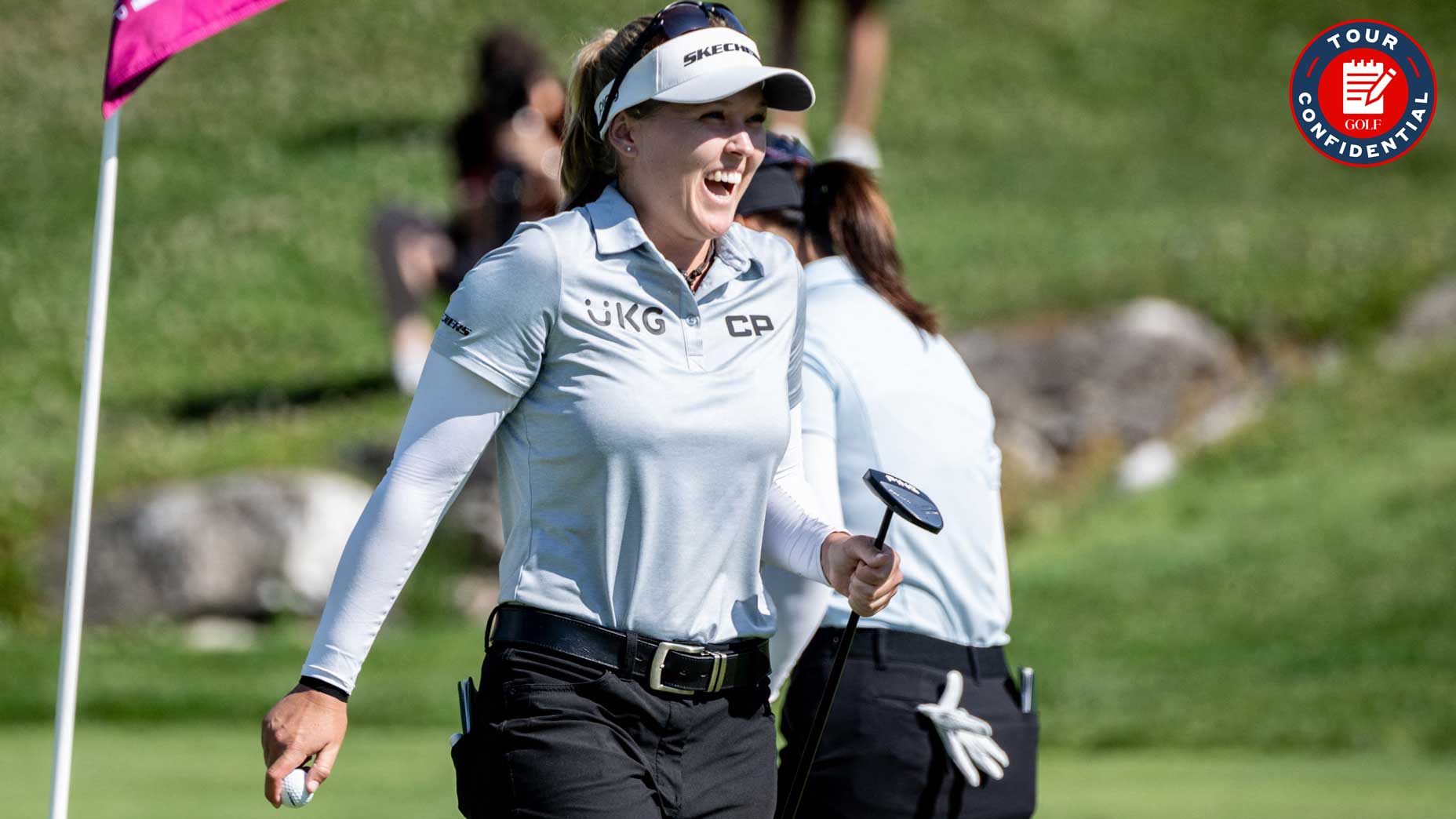The R.C. SAT: Steve Stricker is giving Ryder Cup hopefuls written tests
- Share on Facebook
- Share on Twitter
- Share by Email

Steve Stricker is leaving no question unanswered in his pursuit of a Ryder Cup win for the United States.
Getty Images
No matter what happens for the U.S. squad at the Ryder Cup in September, know the team’s performance will not be for a lack of effort on the part of team captain Steve Stricker.
As we enter the final stretch of play prior to the beginning of the event, Stricker is faced with the unenviable burden of making the United States’ captain’s picks — the six players who are chosen for the team at the discretion of the team captain. In order to ensure his decisions over the next month are sound, the Wisconsinite is ramping up the vetting process in a manner that’d make the College Board proud.
Yes, the U.S. captain is reportedly giving Ryder Cup hopefuls written questionnaires as part of a larger effort to assess their capacity for representing the U.S. side — a revelation that came courtesy of one of the hopefuls, Scottie Scheffler.
“Yeah, I mean, they’ve asked us all a couple questions,” Scheffler told reporters at the Northern Trust on Thursday. “I think they send out the stuff to like the top 20, 25 guys on the list.”
What’s it like on the first tee of the Ryder Cup? Pros describe the circusBy: Nick Piastowski
Scheffler, who currently sits 14th on the U.S. Ryder Cup list, told reporters he was asked to fill out the questionnaire as part of the run-up to the event — a sort of self-assessment to help Stricker better understand how players view their own games.
“It’s funny, we filled out some stuff kind of like that. ‘What are you good at, what are you bad at.’ I think so he can get a feel for all the guys,” Scheffler said. “I’m not going to tell what you I wrote down. He promised me no one else would see it, so it’s between us. Yeah, I mean, I feel like I’m a good player; I would help the team. Like I said before, it’s really up to those guys, not to me.”
Personality tests and self-assessments are far from unusual in professional sports. Some NFL teams use similar questionnaires in working with prospective draftees, while other professional and collegiate teams employ sports psychologists as a method of ensuring proper cohesion among teammates.
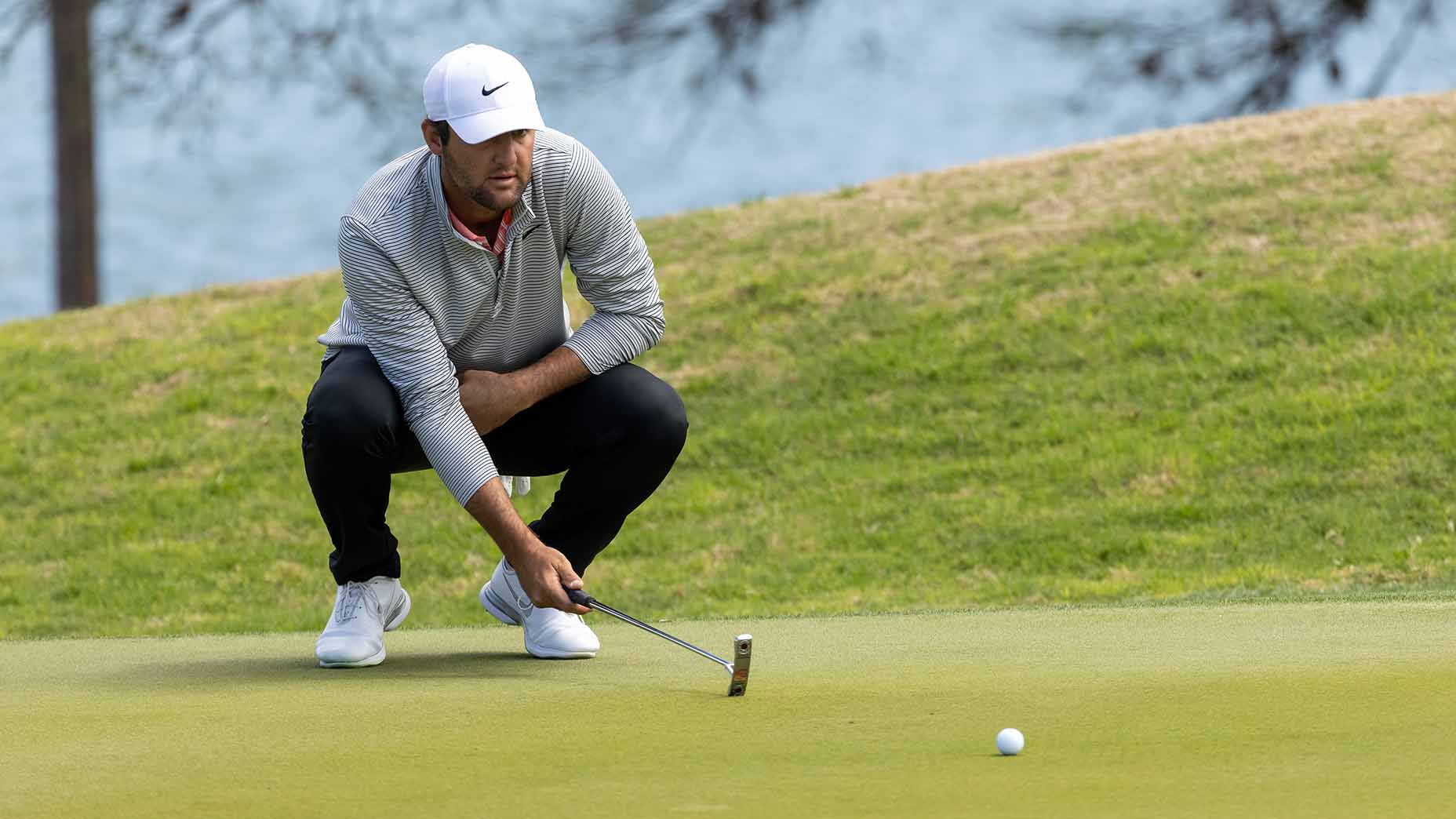
Concerns about the team-building abilities of the U.S. have swirled in the wake of the feud between Bryson DeChambeau and Brooks Koepka, to say nothing of the lingering aftershocks from the alleged dust-up between Koepka and Dustin Johnson after the European blowout in 2018.
While Scheffler wouldn’t divulge his answers, his comments shed some light into the careful consideration Stricker is placing upon his selections for this year’s team.
“Yeah, ‘I care too much. I try too hard,'” Scheffler said with a laugh. “No, it’s a simple question. He didn’t ask what are you bad at, he said, ‘What are you trying to improve on?’ I could talk for 30 minutes with you about how I am trying to improve my game. That’s why I don’t set long-term goals. I have the stuff that I know I need to get better at in order to be where I want to be, and that’s that.”
So, did Scheffler pass the test?
“I don’t want to give up our secrets,” he said. “I feel like I’ve said too much already.”
Latest In News

James Colgan
Golf.com Editor
James Colgan is a news and features editor at GOLF, writing stories for the website and magazine. He manages the Hot Mic, GOLF’s media vertical, and utilizes his on-camera experience across the brand’s platforms. Prior to joining GOLF, James graduated from Syracuse University, during which time he was a caddie scholarship recipient (and astute looper) on Long Island, where he is from. He can be reached at james.colgan@golf.com.

